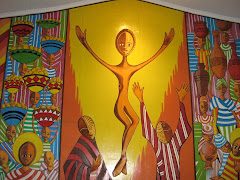.jpg)
.jpg)
 Our lives are the only Bible some people will ever read.
Our lives are the only Bible some people will ever read.
It is really a wonder to know how much people watch us as Christians, and will put us to the test!
Always be on guard...!
and remember --
You carry the name of Christ
on your shoulders
when you call yourself a Christian .
----------------------
Watch your thoughts; they become words.
Watch your words; they become actions.
Watch your actions; they become habits.
Watch your habits; they become character.
Watch your character; it becomes your destiny.
@@@@@@@@
If you don't pass this on to anybody, nothing bad will happen to you;
but, if you do, you will have ministered to someone.
The Will of God will never take you to
where the Grace of God will not PROTECT you...
Stay FAITHFUL
and Be GRATEFUL!
~~~~~~~~









.jpg)

.jpg)




